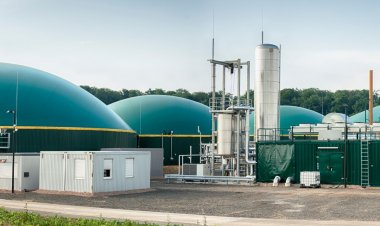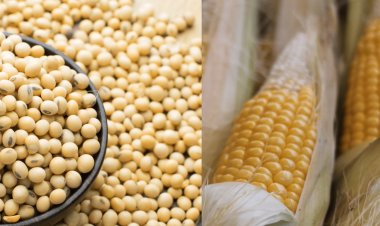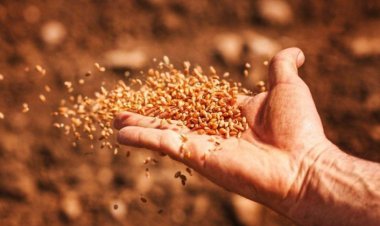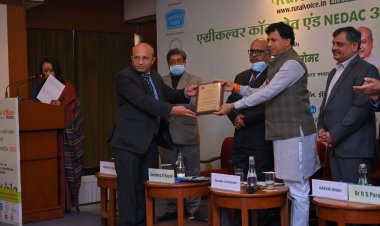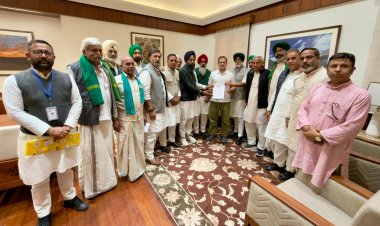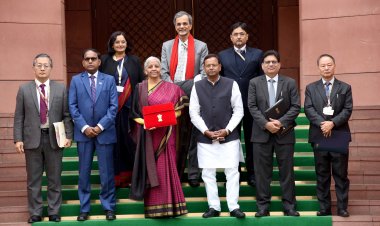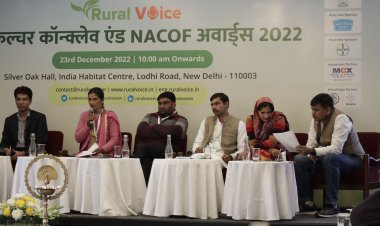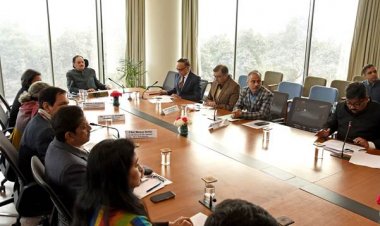IFFCO MD hails nod to commercial release of nano-DAP
The agriculture ministry has approved commercial release of nano-diammonium phosphate (nano-DAP), which is expected to reduce subsidy and the import dependence on the fertiliser variety. IFFCO Managing Director U S Awasthi said, “Indeed it’s a very big news of the day for the fertiliser sector as the government approves commercial release of Nano-DAP.”
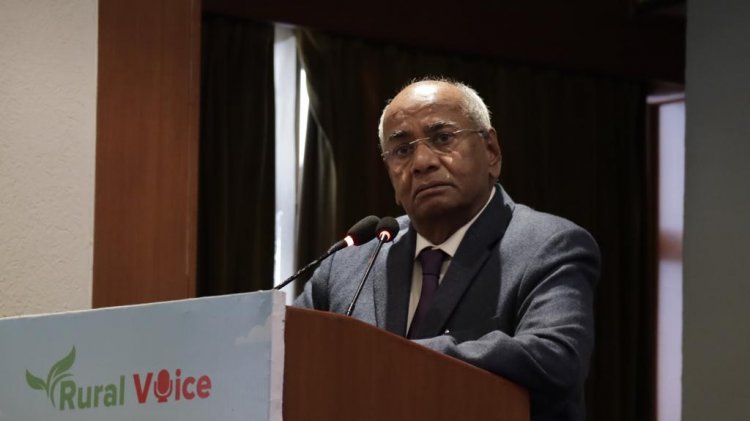
The agriculture ministry has approved commercial release of nano-diammonium phosphate (nano-DAP), which is expected to reduce subsidy and the import dependence on the fertiliser variety.
Nano-DAP will be manufactured by India Farmers Fertiliser Cooperative (IFFCO) and an official notification will be issued soon.
The Indian Council for Agricultural Research had earlier recommended provisional release of nano-DAP for one year, following completion of biosafety and toxicity studies.
Currently, the cost of one bag of conventional DAP is Rs 1,350, while the actual cost of a bag is Rs 4,000. The gap between actual cost and prices paid by the farmers is borne by the government under the fertiliser subsidy head.
IFFCO Managing Director U S Awasthi said, “Indeed it’s a very big news of the day for the fertiliser sector as the government approves commercial release of Nano-DAP.”
Awasthi had told an agriculture conference organised by digital media platform 'Rural Voice' that IFFCO would be selling 500-ml bottles of nano-DAP costing around Rs 600-650, which will have the same effectiveness of a bag of conventional soil nutrient.
“As we import substantial quantities of DAP, our import dependence on soil nutrient and the subsidy expenses would reduce,” an official said.
More than half of the country’s DAP requirements are imported, and the main sources are West Asia and Jordan, while India imports about 25% of its annual consumption of urea.
Imports account for a third of domestic soil nutrients consumption of around 60 million tonnes annually.
Fertiliser minister Mansukh Mandaviya in December last year had stated that with the wider use of nano-urea and nano-DAP, the fertiliser subsidy incurred by the government could be reduced significantly over the next couple of years.
In June 2021, cooperative IFFCO launched nano urea in liquid form as an alternative to conventional urea. The commercial production of nano urea was commenced on August 1, 2021 by IFFCO and Rashtriya Chemicals and Fertilizers. Soil nutrient in liquid form provides nitrogen to plants as an alternative to conventional urea. A 500-ml bottle of nano urea is equivalent to a 45-kg bag of conventional urea.
Officials said the efficiency of nano urea is more than 80%as compared to around 40% of conventional urea. Use of nano urea increases yield by 3-16%. As per revised estimates, the fertiliser subsidy for the current fiscal is estimated at Rs 2.25 trillion, which is an increase of 39% over Rs 1.62 trillion in 2021-22.
It is mainly attributed to a spike in global prices of fertilisers and LNG, a key ingredient in the manufacturing of urea.
Rating agency Icra expects the fertiliser subsidy at around Rs 2 trillion in 2023-24. In case of urea, farmers pay a fixed price Rs 242 per bag (45 kg) against the cost of production of around Rs 2,650 per bag. The balance is provided by the government as a subsidy to fertiliser units.
The retail prices of phosphatic and potassic (P&K) fertiliser, including DAP, were ‘decontrolled’ in 2020 with the introduction of a ‘fixed-subsidy’ regime, as part of the nutrient-based subsidy mechanism announced by the government twice in a year.
IFFCO is also planning to launch nano-potash, nano-zinc and nano-copper fertilisers, Awasthi had said at the 'Rural Voice' conclave to mark its 2nd anniversary.
Awasthi said IFFCO has produced 5 crore bottles of nano urea so far, out of which 4.85 crore bottles have already been sold. He highlighted that the price of nano urea is less than conventional urea and it is also more effective and convenient.
There is no government subsidy on nano urea and it is being sold at Rs 240 per bottle. For conventional urea, the government provides a huge subsidy to ensure that the farmers get the soil nutrient at a reasonable price.
Awasthi said the company has developed nano DAP (di-ammonium phosphate) as well and has already applied for government approval for introducing this product in the market.
He announced that nano-DAP will be sold at Rs 600 per bottle of 500 ml. One bottle will be equivalent to one bag of DAP, which costs Rs 1,350.
On the sidelines of the ‘Rural Voice’ event, which saw the participation of agriculture experts, soil scientists, policy planners and farmers' representatives, Awasthi had said the co-operative hopes to get the government approval by the end of next month.
In the next 4-5 years, he said, there would be huge savings in foreign exchange as imports of urea and DAP might not be required.
Awasthi said the government's fertilisers subsidy bill would come down drastically as nano-fertilisers would be sold in the market without any subsidy.
The fertiliser subsidy bill for the current fiscal is estimated at around Rs 2.25-2.5 lakh crore as against about Rs 1.6 lakh crore last year.
Mandaviya had said that India might not need to import urea after 2025 as domestic production of conventional and nano liquid urea could be sufficient to meet domestic demand.
By FY'25, around 440 million bottles of 500 ml nano urea will be produced. This will be equivalent to around 20 million tonnes of urea. It will take care of the 9 million tonnes that India imports annually.
The country's domestic urea production is around 26 million tonnes, while demand is about 35 million tonnes. The gap is met through imports.
India also imports DAP and MoP (muriate of potash) in huge quantities to meet its domestic demand.



 Join the RuralVoice whatsapp group
Join the RuralVoice whatsapp group


















